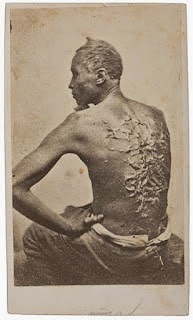I’m excited. I’ve finally started a blog where I can write about something other than fashion
history. After a nudge from fellow thriller author David E. Manuel who tagged
me for the 'My Writing Process' blog hop, I got cracking on this blog. And here it is. Thank you,
David!
 |
| David E. Manuel |
|
I’m a fan of David’s. He’s a great author so make sure to visit his blog and check out his
books - published and in progress. I’ve read his “Killer Protocols.” Trust me, once you've read that book you’ll
never look at the Environmental Protection Agency in the same way again.
But enough about David. I have to follow the
hop rules here – meaning tell you about what I'm up to. So, to quote Dylan Thomas, one of my favorite writers, to begin at the beginning. Luckily I was given questions to guide me and luckily for you there are only four.
And here's question number one...What am I working on?
The seed that would grow into the novel I’m writing now was planted at the time of
the 2010 BP oil spill in the Gulf of Mexico. It struck me then that big
business has never done the world any good. I saw a distinct parallel between the
sugar industry of the 17th and 18th centuries and the petroleum
industry of today. Both industries were (the petroleum industry still is)
powerful enough to influence the global policies of the leading nations. Both
industries caused wars and human suffering and it’s now widely acknowledged
that the petroleum industry is a major contributor to our environmental woes.
But what can we do? We’re all entrenched in a way of life in which oil plays a big part. Which of us would turn off our air conditioning on a blistering day or
walk instead of driving for the sake of the environment? Sarah Granville
my 1800s character is vehemently opposed to slavery and yet she prefers her tea
sweetened. Remember sugar and slavery went hand in hand at the time Sarah lived. Robert Courtney, who
believes all people are equal, admonishes Sarah when she says the African
slaves are no more than savages. Yet Robert Courtney is a slave owner. Often
the noblest ideals fall by the wayside of life.
The challenge was linking the past and present in a continuing story confined to one novel. The solution was re-incarnation. Two people who lived in the early 19th century meet again in the 21st century to face their unresolved issues. In the year 1802, Sarah Granville is a young English aristocrat, an abolitionist and a feminist. As fate would have it, she falls in love with Robert Courtney, a sugar baron who has more than eight hundred slaves working on just one of his estates. The two meet again in 2010 when Sarah is now a die-hard environmentalist and Robert is a top level oil executive. Will they put their differences aside to be together at last? We'll see what happens. The book isn't finished yet.
How does my work differ from others in this genre?
I'm keeping my fingers crossed that fans of historical fiction will forgive my departure from the norm seeing I've done a good job of capturing early 19th century England. But although a large part of the novel is set in the 1800s, much of it takes place in current times. Also, there's the paranormal element. I've yet to decide what genre this book is. Historical? Historical Romance? Paranormal? Paranormal Romance? No worries. I'll figure it out by the time I finish writing it.
Question number three. Why do I write what I do?
I
have no idea why I write what I write. It just comes to me and I go with the
flow, wherever it’s taking me.
How does my writing process work?
The
word process alludes to the kind of discipline that certainly doesn’t exist for
me. I don’t plot very much. It’s pointless, because a character can do
something that will derail all my plans. My
stories come to me in scenes and they're often not consecutive. I don’t
think in words so much as in visuals and like a movie, a lot of the scenes aren’t
shot strictly in the order they appear on the storyboard. For example, a visual of Courtney and
Sarah dancing came to me one evening when I was just about to fix
dinner. It’s been in my “scenes” file waiting to be slotted into a future
chapter. That sounds a bit hodgepodge, but somehow it works, for me anyway. When I start the chapter, I’ll be moving toward this moment
when, after two rather strained encounters, Courtney hints at a romantic interest
in Sarah...
“I think you take pity on me in asking me to dance.”
“It is not as you say. I would do you no such dishonor. I
dance with you because you are lively of mind.”
“How strange that you should dance with someone because you
find them lively of mind. A ballroom floor is not the best place to converse.”
“Indeed
it is not, but tonight I give thanks for the ballroom floor.”
 |
| Dance scene from the movie Pride and Prejudice |
Well, let's leave Sarah and Robert to sort it out, because it's time for me to introduce you to thriller authors Jan Ryder and George Henry and multi-genre author Annamaria
Bazzi. Please make sure to visit them and see what they're up to.
 |
| Jan Ryder |
Visit Jan at
 |
| George Henry |
Visit George at
 |
| Annamaria Bazzi |
|
|
|
|
|
Visit Annamaria at





.jpg)





